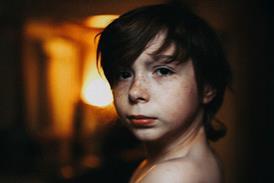Dir: Tonie Marshall. Fr-Can-Sp. 2002. 97mins.
Tonie Marshall's latest outing proves again that no amount of screenplay physics can make up for a lack of chemistry between leading man and leading lady. And the pairing of Catherine Deneuve-William Hurt, however intriguing it looks on paper, fizzles and dies in this flat melodrama. Possibly the actors' minds were elsewhere: shooting on the US scenes began on Sept 12 last year - not the best timing for a romance, especially not one that makes a recurring motif of the Empire State Building. Even the prospect of splashing Deneuve and Hurt on the poster is unlikely to hook many distributors outside of the three co-production territories. Only in France (where the film opens on Nov 20 after its Venice competition berth) and Francophone territories is film likely to achieve major bankability thanks to the success of Morrision's 1999 comedy Venus Beaute (Institut).
Shot and lit in a bland TV style with the occasional focus pull and artsy fade to remind the audience it's in a cinema, The Nearest To Heaven dwells on the unrealised passions of Fanette (Deneuve), a fifty-something belle who makes enough from art criticism to clothes-horse some really elegant outfits (there's credit check for Jean-Paul Gaultier). When she meets an old male friend from her student days, old passions are stirred - but not for her acquaintance. Instead Fanette realises she still yearns for a mutual friend, Philippe, who she keeps seeing, or imagining, out of the corner of her eye.
For some reason, Fanette is drawn to watch endless reruns of the Cary Grant-Deborah Kerr vehicle An Affair Of The Heart, the big plot spanner of which is a missed appointment on the top of the Empire State Building (also used more recently in Sleepless In Seattle). The scene is thus somewhat laboriously set for Fanette to show off some more outfits in New York, where William Hurt - who plays an art photographer - finally gets his chance to make her forget about Philippe.
Just occasionally this plodding menopausal romance succeeds in its play for a darker, more complex tint. After a shaky start, Hurt begins to go beyond his playsafe enigmatic smile and get into the character - especially, one feels, in the scene where he is called on to thrust his hand between Catherine Deneuve's legs.
But too often the dialogue pushes beyond clever unpredicatabilty into mere incoherence, and in the end, the character of Fanette just isn't interesting enough to hold our attention, despite some desperate screenplay sidelighting involving Fanette's stroppy daughter, who has the mother of all mother complexes. When Fanette finally chooses her man, even the swelling strings are not enough to bring catharsis; and instead of handkerchiefs, the audience reach for their coats.
Prod cos: Pyramide Productions, Maia Films, Tabo Tabo Films, Lola Films
Fr dist: Pyramide
Int'l sales: Flach Pyramide Int'l
Prods: Fabienne Vonier, Gilles Sandoz
Scr: Marshall, Anne Louise Trividic
Cinematography: Agnes Godard
Prod des: Pierre-Francois Limbosch, Ginette Robitaille
Ed: Jacques Comets
Music: Francois Dompierre
Main cast: Catherine Deneuve, William Hurt, Bernard Le Coq, Helene Fillieres, Patrice Chereau, Nathalie Richard, Gilbert Melki



















No comments yet